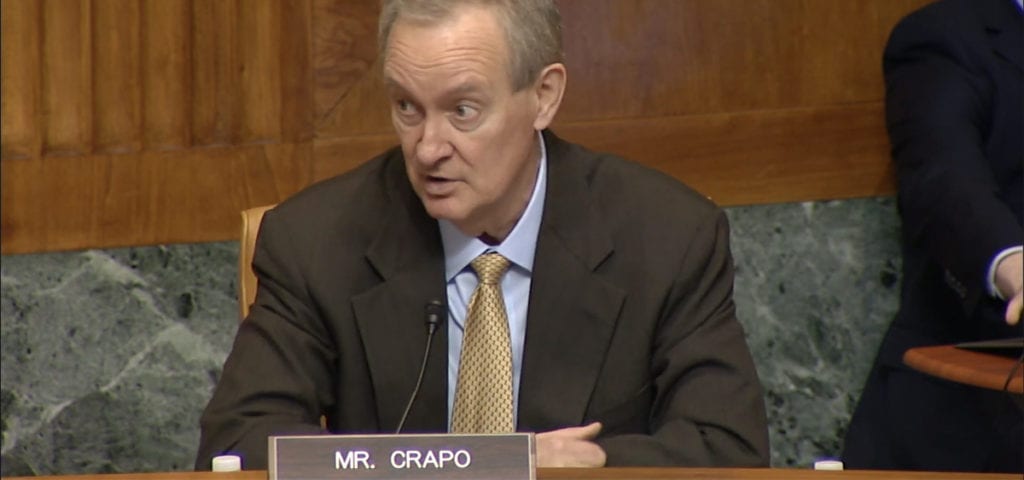The SAFE Banking Act, which was co-sponsored by one-third of the House and one-fifth of the Senate, may never advance further than the Senate Banking Committee after the committee’s chair Sen. Mike Crapo (R-Idaho) said he would not commit to granting the legislation a hearing.
Senate Banking Committee GOP Chair May Block SAFE Banking Act

Full story continued below.
Advertisement
Idaho Sen. Mike Crapo, the Republican chairman of the Senate Banking Committee, said he would not commit his committee to considering the SAFE Banking Act, a piece of federal legislation that would give protections to banks who work with state-legal cannabis companies.
The SAFE Banking Act became the first piece of major federal cannabis reforms to advance out of a key Congressional committee in March after passing 45-15 through the House Financial Services Committee; it is expected to receive a hearing on the full House floor by June.
According to Sen. Crapo, however, cannabis’ federally illegal status may deter the committee he chairs from considering the legislation. “As long as cannabis is illegal under federal law, it seems to me to be difficult for us to resolve this,” he said.
The chairman also seemed to suggest that the issue of cannabis industry banking should be tackled by the Department of Justice, not Congress.
“I cannot make a commitment as to whether we will take up legislation yet because we want to see how we can resolve this difference between criminal law and our financial law,” he said.
Crapo’s comments were made during a conference for the Independent Community Bankers of America (ICBA), according to Politico.
Crapo says he can’t commit to moving marijuana banking legislation. Via @vtg2 https://t.co/HI3NTVQ70D
— POLITICO Pro (@POLITICOPro) April 30, 2019
Notably, Crapo’s comments before the ICBA contrast directly with the organization’s own priorities. As Marijuana Moment reports, the ICBA supports, “Advocating federal legislation establishing a safe harbor from federal sanctions for banks that serve cannabis-related businesses in states where cannabis is legal under state law.”
The bipartisan bill has been co-sponsored by more than one-third of the House and one-fifth of the Senate.
Get daily news insights in your inbox. Subscribe
End